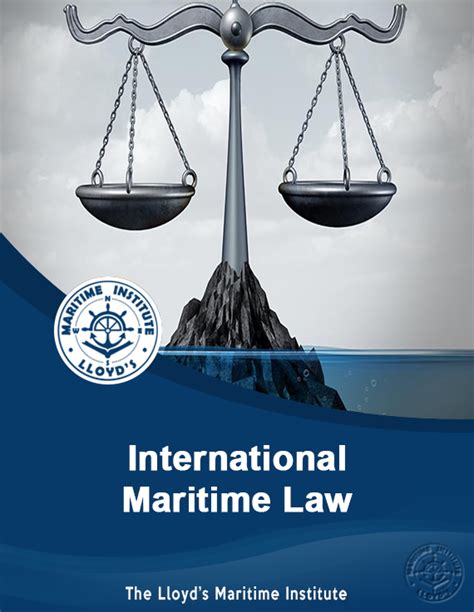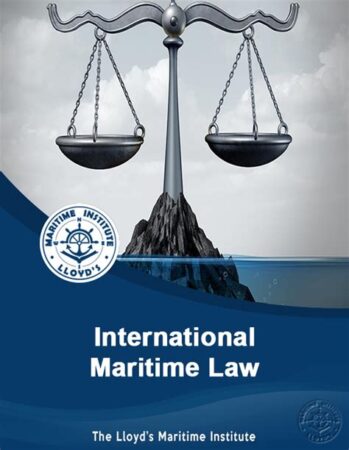
- International Maritime Employment Law: A Comprehensive Guide
- Introduction
- Key Principles of International Maritime Employment Law
- Enforcement Mechanisms
- Table: Key Conventions and Their Provisions
- Conclusion
-
FAQ about International Maritime Employment Law
- What is international maritime employment law?
- Who is covered by international maritime employment law?
- What are the key provisions of the MLC, 2006?
- How is international maritime employment law enforced?
- What are the penalties for violating international maritime employment law?
- How can I find out more about international maritime employment law?
- What are the benefits of working in the maritime industry?
- What are the challenges of working in the maritime industry?
- What is the future of international maritime employment law?
International Maritime Employment Law: A Comprehensive Guide

Introduction
Greetings, readers! Welcome to the world of international maritime employment law. This comprehensive guide will delve into the complexities of this legal framework, providing insights into its principles and regulations. We’ll navigate the intricate aspects of this field, exploring everything from seafarers’ rights to international conventions.
Maritime employment presents unique challenges, given the dynamic nature of the industry and the global reach of shipping operations. International maritime employment law aims to protect the rights of seafarers, ensure fair working conditions, and maintain order on the high seas.
Key Principles of International Maritime Employment Law
Seafarers’ Rights
The cornerstone of international maritime employment law is the safeguarding of seafarers’ rights. These rights include:
- Compensation and Benefits: Seafarers are entitled to fair wages, overtime pay, and benefits, including medical care, life insurance, and pension plans.
- Working Hours and Rest Periods: Maritime regulations establish strict limits on working hours and ensure adequate rest periods for seafarers to maintain their safety and productivity.
- Safe Working Conditions: Employers are obligated to provide safe working environments on vessels, including proper equipment, training, and emergency procedures.
International Conventions
International conventions play a pivotal role in the regulation of maritime employment. These treaties set minimum standards for seafarers’ rights and working conditions. Some notable conventions include:
- Maritime Labour Convention, 2006 (MLC): The MLC is the most comprehensive international convention, covering a wide range of issues related to seafarers’ rights, working conditions, and social protection.
- International Convention on Standards of Training, Certification, and Watchkeeping for Seafarers (STCW): This convention establishes minimum standards for the training and certification of seafarers to ensure maritime safety and prevent pollution.
- International Convention for the Prevention of Pollution from Ships (MARPOL): MARPOL addresses pollution prevention from ships, including the discharge of oil, sewage, and hazardous substances.
Enforcement Mechanisms
Flag State Responsibility
The flag state (the country whose flag a ship is flying) has primary responsibility for enforcing international maritime employment laws. Flag states must ensure that their vessels comply with international conventions and maintain adequate regulatory oversight.
Port State Control
Port state control (PSC) authorities inspect foreign vessels calling at their ports to verify compliance with international standards. PSC inspections cover various aspects, including safety, pollution prevention, and seafarers’ working conditions.
International Labour Organization (ILO)
The ILO plays a crucial role in enforcing international maritime employment laws. It conducts inspections, provides technical assistance to member states, and promotes dialogue between shipowners and seafarers’ unions.
Table: Key Conventions and Their Provisions
| Convention | Scope | Key Provisions |
|---|---|---|
| Maritime Labour Convention, 2006 (MLC) | Covers all seafarers on ships engaged in commercial operations | Minimum standards for seafarers’ rights, working conditions, and social protection |
| International Convention on Standards of Training, Certification, and Watchkeeping for Seafarers (STCW) | Establishes training and certification requirements for seafarers | Minimum standards for maritime safety and pollution prevention |
| International Convention for the Prevention of Pollution from Ships (MARPOL) | Addresses pollution prevention from ships | Standards for the discharge of oil, sewage, and hazardous substances |
| Convention on the Law of the Sea (UNCLOS) | Governing framework for international maritime law | Defines maritime zones, sets rules for navigation, and includes provisions on the rights and duties of flag states |
| International Convention for the Safety of Life at Sea (SOLAS) | Focuses on ship safety and safety of life at sea | Minimum standards for ship design, construction, equipment, and emergency procedures |
Conclusion
International maritime employment law is a complex and ever-evolving field that plays a critical role in protecting the rights of seafarers and ensuring the safe and efficient operation of maritime transportation. By adhering to international conventions and implementing effective enforcement mechanisms, we can create a fair and equitable environment for all those who work on the high seas.
Thank you for joining us on this journey. To delve deeper into related topics, check out our articles on maritime law, shipping regulations, and the international trade industry.
FAQ about International Maritime Employment Law
What is international maritime employment law?
International maritime employment law is a body of law that governs the employment of seafarers on ships engaged in international trade. It covers issues such as wages, working hours, safety, and dispute resolution.
Who is covered by international maritime employment law?
International maritime employment law covers seafarers who are employed on ships that are registered in a country that is a party to the Maritime Labour Convention, 2006 (MLC, 2006).
What are the key provisions of the MLC, 2006?
The MLC, 2006 sets out minimum requirements for the employment of seafarers, including:
- Wages
- Working hours
- Rest periods
- Accommodation
- Food and catering
- Medical care
- Social security
- Training and certification
- Dispute resolution
How is international maritime employment law enforced?
International maritime employment law is enforced by the flag state of the ship, the port state where the ship is calling, and the coastal state in whose waters the ship is operating.
What are the penalties for violating international maritime employment law?
The penalties for violating international maritime employment law vary depending on the jurisdiction. They may include fines, imprisonment, and the suspension or revocation of a ship’s registration.
How can I find out more about international maritime employment law?
You can find more information about international maritime employment law from the International Labour Organization (ILO), the International Maritime Organization (IMO), and national maritime authorities.
What are the benefits of working in the maritime industry?
Working in the maritime industry can offer a number of benefits, including:
- Good pay and benefits
- Tax-free earnings in many cases
- The opportunity to travel the world
- A sense of adventure and excitement
What are the challenges of working in the maritime industry?
Working in the maritime industry can also present a number of challenges, including:
- Long hours
- Hard physical work
- Time away from home
- The risk of accidents and injuries
What is the future of international maritime employment law?
International maritime employment law is constantly evolving to meet the changing needs of the shipping industry. The ILO and IMO are working together to develop new regulations and guidelines to improve the working conditions of seafarers.




